Where’s Rebekah Mason when the Luv Gov needs her?

I remember watching the train wreck that was Governor Robert Bentley‘s March press conference about his then-alleged but now confirmed affair with Rebekah Mason and thinking this has to be the worst decision by a principle and communications team I’ve ever seen. I wondered why no one stopped him. He’s a small man and his security detail would probably have turned a blind eye to someone tackling him and not letting him to the podium. I mean we’ve all heard how some on the detail had turned a blind eye to so many other of his and his staff’s indiscretions by that point. When the governor resigned and took his plea deal I thought/hoped that would be the end of our reminder of what a disappointment he ended up being to the Yellowhammer State. Then I came across a new t.v. interview published Tuesday by WVTV13 where our former, and now disgraced governor, talked about his political downfall and life out of office. Needless to say, his level of denial borders on clinical. My first thought when I read the AP headline, “After resigning in disgrace, Bentley gives himself high marks as Alabama’s governor,” was yet again — why didn’t someone stop him? Then I realized he doesn’t have anyone to stop him. For a brief moment I wished Mason was around to tell him what a bad idea any interview would be, let alone one he was clearly unprepared for. During the on-camera interview (though the camera is out of the room during some shots), Bentley said he was the “best governor” Alabama has ever had. Sadly, I’m not kidding. He actually said it. He then went on to say special interests are now running the state. Which leads me to believe he isn’t following the news. If he were, he’d probably know that Governor Kay Ivey has instituted new rules that prohibit lobbyists from serving on commissions and boards. She’s also gotten rid of some of the fluff he and his team created and her approval ratings are incredible. She has the 5th highest approval and the lowest disapproval of any governors. In the ill-fated interview Bentley talked about his popularity and said that everywhere he goes people want to shake his hand. Let me be clear, I have no desire to shake his hand or congratulate him for a job well done. As someone who tried to give him the benefit of doubt when the affair rumors first surfaced I just want to wag a finger at him and tell him what a disappointment he turned out to be in the end. He knew that he broke laws and abused his power in his attempt to cover up his affair and for months he denied it. To say he loves the state of Alabama and to claim he served it well is laughable. That said, there is a Bentley whose hand I would like to shake, Dianne Bentley‘s. I want to shake her hand, give her a hug, high five her and then buy her a bottle of wine. She remains one of the only players in the Robert Bentley saga that I hope doesn’t fade from sight. Her work as the first lady on domestic violence issues was incredible. Her actions in taping the governor and quietly filing for divorce — classic. I could go the rest of my life without being reminded of the opportunities that Governor Bentley wasted and missed. I could go the rest of my life without being reminded that he let so many down, betraying their trust and making the office of the governor. I could go the rest of my life and never need to hear his excuses and delusions about this being a witch hunt again. So if Rebekah Mason is still around, hanging onto a burner phone or two, or if there’s any communications professional in his circle of trust, would someone please give the former governor a call and, for the love of all that is holy, keep him from doing any more interviews and embarrassing himself and the state further.
Donald Trump had second, previously undisclosed conversation with Vladimir Putin at G-20 Summit
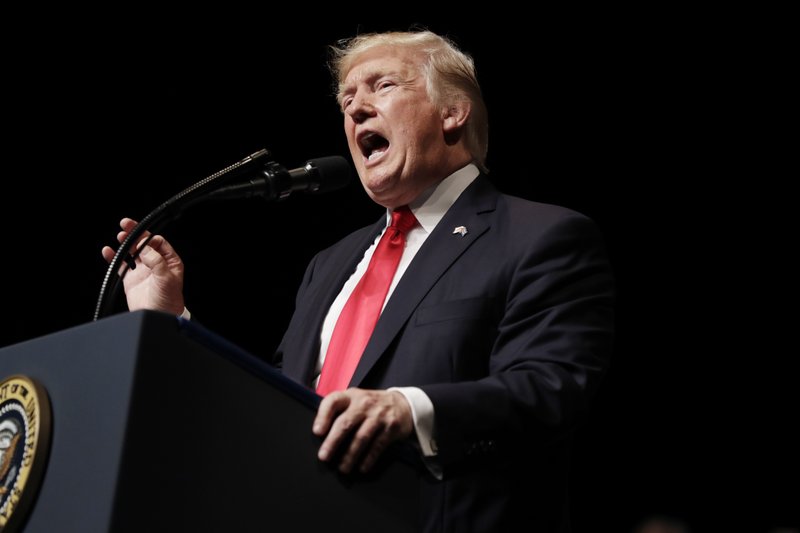
President Donald Trump had a second, previously undisclosed conversation with Russian President Vladimir Putin at a summit in Germany earlier this month. White House spokesman Sean Spicer says Trump and Putin spoke during a world leaders’ dinner at the Group of 20 summit in Hamburg. The two had a formal meeting that lasted more than two hours earlier that day. It was not immediately clear how long the informal conversation lasted or what was discussed. U.S. intelligence officials have accused the Russian government of meddling in the 2016 election to help Trump win.
Callista Gingrich shows she’s ready for ambassadorship
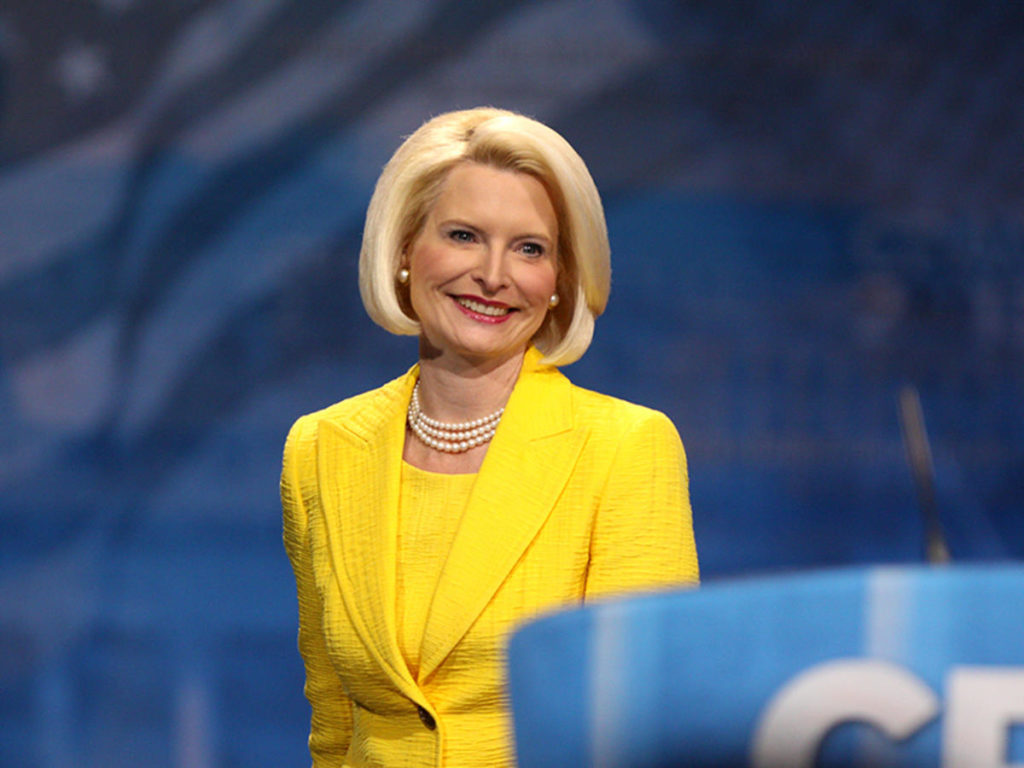
Callista Gingrich‘s confirmation hearing in the U.S. Senate Committee on Foreign Relations was Tuesday afternoon. As expected by many, myself included, Gingrich did beautifully. She was able to articulate the administration’s positions on tough issues such as climate change and immigration as well as lay out her concerns about and desire to make a priority issue of human trafficking. Her opening statement introduced those who may not be familiar with her to a background that makes her more than qualified to be the U.S. ambassador to the Holy See. Highlighting the two Catholic-centered films that she produced, Nine Days that Changed the World and Divine Mercy: The Canonization of John Paul II, and her extensive commitment to the Catholic church, Gingrich knocked it out of the park. I wanted to see what others thought, so I eagerly clicked on various stories that came up on my Google news and checked my twitter feed. Mistake. I couldn’t help but find myself perplexed and disappointed to find story after story and tweet after tweet highlighting the fact that her marriage started as an extramarital affair. More than that people felt that this should define her and her life and disqualify her from serving our nation. That couldn’t be further from the truth. Who better to represent our nation as the ambassador to the Holy See than someone who’s life and convictions have been tested by fire and who has kept the faith serving her church and her community throughout her life. Callista is extremely qualified to be the US ambassador to The Vatican. She and Newt have done a lot for Catholicism and Catholics in America and I’m proud to be a Catholic woman who supports her. The circumstances of her and Newt’s relationship is between her, him and God. Being Catholic, it’s safe to assume she’s been to reconciliation and has received her penance for the way things started but that’s not my business or yours and it’s certainly not the business of those who are attempting to shame or bully her. I’m proud of Callista for accepting Trump’s nomination. In this day and age where internet trolls feel empowered to hide behind their computers calling people names and passing judgement Callista had to know that there would be those who tried to define her by the way her relationship to her husband of 17 years began. Today, she stood her ground demonstrated that she is qualified and that she won’t let a decades old personal choice define her. I hope the full body of the U.S. Senate confirms her and I’m excited to see her in action. Just in case you’re not familiar with her here are some facts you may not know about Callista: Her nickname, as well as her twitter handle is Cally. @CallyGingrich. She is the author of the patriotic children’s book series “Ellis the Elephant,” in which, an elephant protagonist “learns about the pivotal moments that have shaped our nation.” She also co-wrote a book called “Rediscovering God In America.” Worked as the Chief Clerk for the House Agriculture Committee from 1995 to 2007. Her IMDB notes that, “During her tenure the Agriculture Committee held hearings on a wide range of issues including biotechnology, bioterrorism, conservation, forest management, nutrition, rural development, trade and welfare reform.” Is the President of Gingrich Productions, a multimedia production company with her husband Newt. The company has produced films, featuring the Gingriches, including: A City Upon a Hill, America at Risk, Nine Days that Changed the World a documentary about Pope John Paul II, Ronald Reagan: Rendezvous with Destiny, Rediscovering God in America, Rediscovering God in America II: Our Heritage, and We Have the Power. She is a member of the choir at Washington’s Basilica of the National Shrine of the Immaculate Conception and has been for 20 years. She is a lifelong Catholic and assisted in her husband’s conversion as his sponsor into the faith in March 2009. She played a significant role on her husband’s 2012 campaign for President, where she was described by the campaign as the “chief morale officer.”
Brian McGee says Doug Jones is his choice for U.S. Senate

Two candidates running in the special election for Attorney General Jeff Sessions’ former Senate seat have dropped out of the race and endorsed their former primary opponents. Democrat Brian McGee announced Monday in a joint press conference with former U.S. Attorney and fellow Democrat Doug Jones that he was exiting the race and throwing his support behind his former rival. “Doug Jones is our best candidate for the U.S. Senate, and I will spend as much time as I can working to get him elected,” McGee said. “He will serve Alabama and our country well. I am proud to support him.” Jones accepted the endorsement and praised McGee for his military service and his passion for the state, adding that the Vietnam veteran and educator “will bring that same commitment and excellence to any office he wins.” Also Monday, Republican candidate Dominic Gentile withdrew from the race citing his wife’s diagnosis of breast cancer two weeks ago and said Huntsville Republican Rep. Mo Brooks would be the best man for the job. “I have gotten to know the other nine candidates quite well during this process. Most of them are quite nice and capable gentlemen, but there is only one candidate who meets my extremely high standards,” he said. “I am fully supporting Mo Brooks, and here is why: Mo Brooks is the most conservative candidate in this race and he fully supports our President.” Even with Gentile’s exit, the Republican side of the race is crowded. Remaining candidates include Brooks, former Alabama Supreme Court Justice Roy Moore and sitting U.S. Sen. Luther Strange, who was appointed to the post before Gov. Robert Bentley stepped down. Brooks said after Gentile’s announcement that the latest polling shows a tight race between himself, Moore and Strange, and that the endorsement of his former opponent is “huge.” The primary for the race will be held Aug. 15, followed by a Sept. 26 runoff if necessary. The general election will be held Dec. 12.
Poll: Gov. Kay Ivey has lowest disapproval of any governor in country
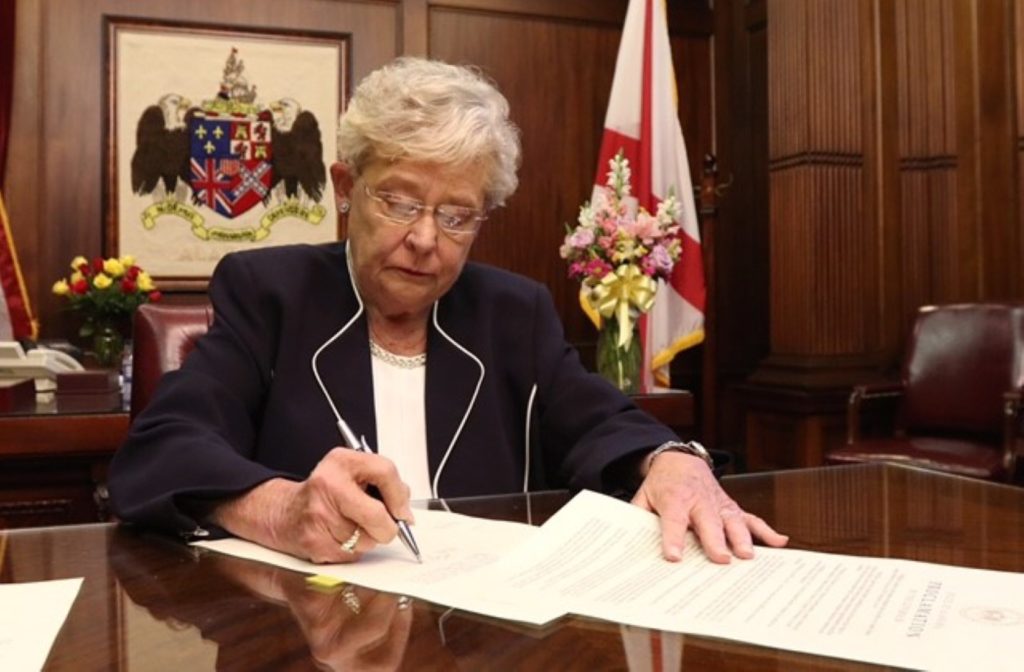
New Gov. Kay Ivey has the fifth-highest approval rating and the lowest disapproval rating among all governors in the country, according to a new poll released by Morning Consult. “Kay Ivey, who replaced former Gov. Robert Bentley in early April, is off to a strong start in the Yellowhammer State, joining the ranks of the most popular governors in the country during her opening months in office,” Cameron Easley wrote. The poll found nearly two-thirds of Alabamians approved of the job the former lieutenant governor has done over the past few months, while only 13 percent disapproved. The rating makes Ivey the second most favored new governor behind only North Dakota Republican Gov. Doug Burgum, who has a 66 percent approval rating. By comparison, 44 percent of voters polled in a previous edition of the rankings approved of Bentley while 48 percent disapproved, giving him a net negative rating among Yellowhammer State voters. The poll points to Ivey’s call for a special election for the Senate seat vacated by Jeff Sessions, her ban on lobbyists receiving executive appointments, and her elimination of 18 government task forces as decisions that moved the needle for Alabama voters. The Morning Consult poll collected responses from 195,704 registered voters nationwide between April 1 and July 10. The data covering senators, released last week, found 53 percent of Alabama voters approved and 29 percent disapproved of Sen. Richard Shelby, while 44 percent approved and 30 percent disapproved of Sen. Luther Strange.
Russian lawyer at Trump Tower meeting drew U.S. scrutiny

The Russian lawyer who met with Donald Trump Jr. last year had drawn attention from U.S. government officials even before that now-famous encounter for her work fighting U.S. sanctions that had angered the Kremlin. At one point, officials tried to seize emails from the attorney, Natalia Veselnitskaya, and deny her entry into the U.S., according to government and legal documents. The scrutiny focused on Veselnitskaya’s ties to Prevezon Holdings Ltd. and its owner, who is the son of a former Russian government official and a fierce advocate for rolling back some of the U.S. sanctions. Her work underscores the blurry lines in Russia between the government and businesses, deepening the questions about her and the June 2016 meeting with Donald Trump Jr. and other Trump associates. At the time of the meeting in Trump Tower, Veselnitskaya was helping defend Prevezon against charges it had engaged in money laundering from a $230 million Russian tax fraud scheme. The fraud was exposed by Sergei Magnitsky, a Russian lawyer whose death in jail in 2009 prompted U.S. lawmakers to enact a law named for him that imposed travel and financial sanctions against Russians believed to be involved in his death. The sanctions angered President Vladimir Putin because they targeted not only rank-and-file investigators and judges but eventually affected close allies like Alexander Bastrykin, head of the Russian Investigative Committee. Veselnitskaya also was working with a group of lobbyists trying to weaken the Magnitsky Act. The $300,000 campaign partly financed by Denis Katsyv, Prevezon’s owner and a client of Veselnitskaya’s. Trump Jr. has said Veselnitskaya spent much of their meeting discussing the Magnitsky Act and one of its repercussions – Russia blocking U.S. adoptions – despite the fact the session was billed as an opportunity to discuss potentially incriminating information about Democrat Hillary Clinton. According to emails released by Trump Jr., he was told by an associate that the promised information was part of the Russian government’s efforts to help his father win the White House. Veselnitskaya’s work history could become fodder for federal and congressional investigators probing whether the Trump campaign coordinated with Russia to meddle in the election. Veselnitskaya has denied having ties to the Kremlin, and President Donald Trump has denied any coordination with Moscow. Rinat Akhmetshin, a Russian-American lobbyist and former Soviet military official, described Veselnitskaya to The Associated Press as a “very emotional person and a great patriot of Russia.” He said he saw no evidence of any direct ties between her and the Russian government. “She’s a hard-working person, very loyal to her clients,” said Akhmetshin, who confirmed to AP on Friday that he also attended the Trump Tower meeting. Despite Russian denials about her working for the government, Veselnitskaya’s efforts against the Magnitsky Act would have been beneficial to the Kremlin, given how the law affected its judges, investigators and associates of Putin. Akhmetshin said Veselnitskaya coordinated frequently with him and others last year in lobbying against the sanctions law. U.S. proponents of the law said the lobbying campaign was also directed at weakening or defeating a proposed expansion of the original measure that authorized the president to sanction individuals, companies or governments complicit in human rights violations and corruption. That bill passed in December and was signed by President Barack Obama. As Veselnitskaya was both defending Prevezon and working for its owner’s anti-sanctions campaign, U.S. officials began scrutinizing her actions and communications. Preet Bharara, then the U.S. attorney for the Southern District of New York, questioned Veselnitskaya for billing the government $2,000 for a two-day stay at New York’s lavish Plaza Hotel during depositions of several Prevezon defendants, including Katsyv. “Ms. Veselnitskaya appears to have stayed at a less expensive hotel during the depositions, but moved to the Plaza after the depositions concluded, and only after the Court orally stated that the government would be responsible for reimbursing defendants’ expenses,” Bharara said in a letter to the trial judge. Bharara was ousted by the new administration in March. Prosecutors also tried to use a grand jury subpoena to learn more about Veselnitskaya’s communications with another Russian lawyer for Prevezon. Prosecutors said that lawyer, Andrey Pavlov, filed sham lawsuits against investors in Russian companies and associates with members of a Russian organized crime group described as “a shadowy criminal syndicate – identified only as ‘the Organization.’” The documents do not explain why prosecutors sought Veselnitskaya’s communications with Pavlov or detail whether any correspondence was turned over to federal authorities. A spokesman for the U.S. Attorney’s Office for the Southern District of New York, which prosecuted the case, declined comment. In a declaration she filed in the case in January 2016, Veselnitskaya complained she had “been harassed by the (U.S.) government” despite being given temporary permission to work in New York on the Prevezon case. She said she was detained at London’s Heathrow Airport on a return trip from the U.S. and “unjustifiably” subjected to a strip search. A federal prosecutor explained in a hearing that U.S. immigration officials had repeatedly denied her entry, but did not explain the reasons. The Justice Department finally allowed Veselnitskaya to temporarily perform legal work in the U.S. under “immigration parole,” a special visa requiring approval from the U.S. attorney general. Trump used that visa clearance to defend his son’s meeting with Veselnitskaya, saying then-Attorney General Loretta Lynch had approved her entry to the U.S. Lynch has said she has no knowledge of Veselnitskaya’s travel. Veselnitskaya has cast her work in the U.S. last year as a success. In May, the Justice Department settled its case, with Prevezon paying $6 million in fines but admitting no guilt. Republished with permission of The Associated Press.
Alabama driver license system closed again for computer issues
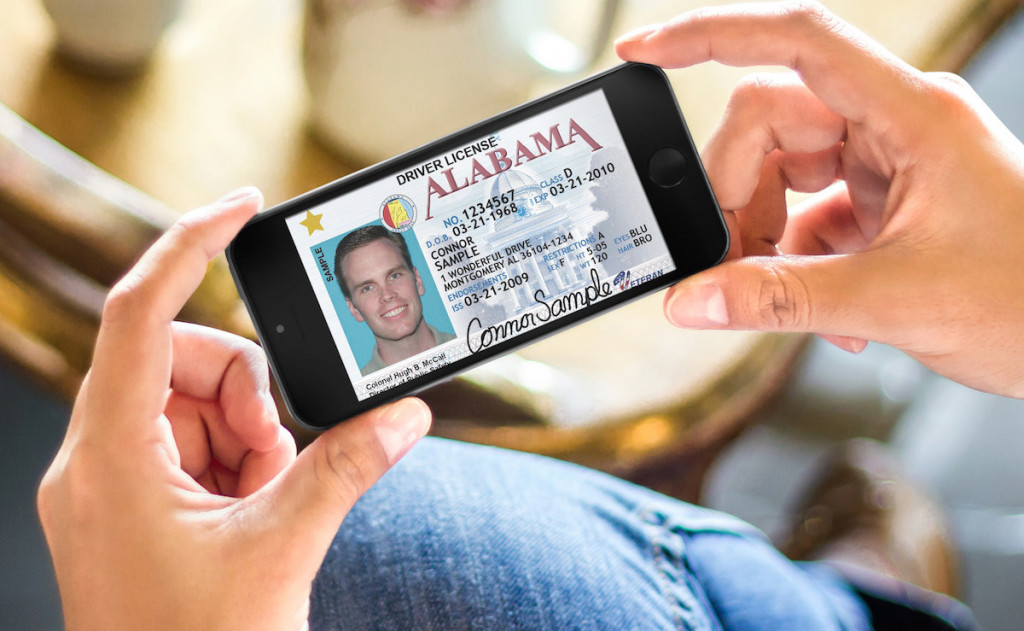
For the second day in a row, Alabama has shut down its system for issuing driver licenses. On Tuesday, Alabama Law Enforcement Agency (ALEA) officials confirmed all ALEA-run Driver License Examining Offices, probate and license commissioners offices, and online services have been closed again for ongoing computer issues. According to ALEA, a software update during the weekend has caused database issues. The vendor is working on the problem and will have the system up and running as soon as possible. Driver License has shut down issuance again. Software update during weekend has caused database issues, but vendor is working on problem — Ala Law Enforcement (@ALLAWENF) July 18, 2017 Monday the system was down statewide for approximately two hours.
House budget blueprint boosts military, cuts food stamps
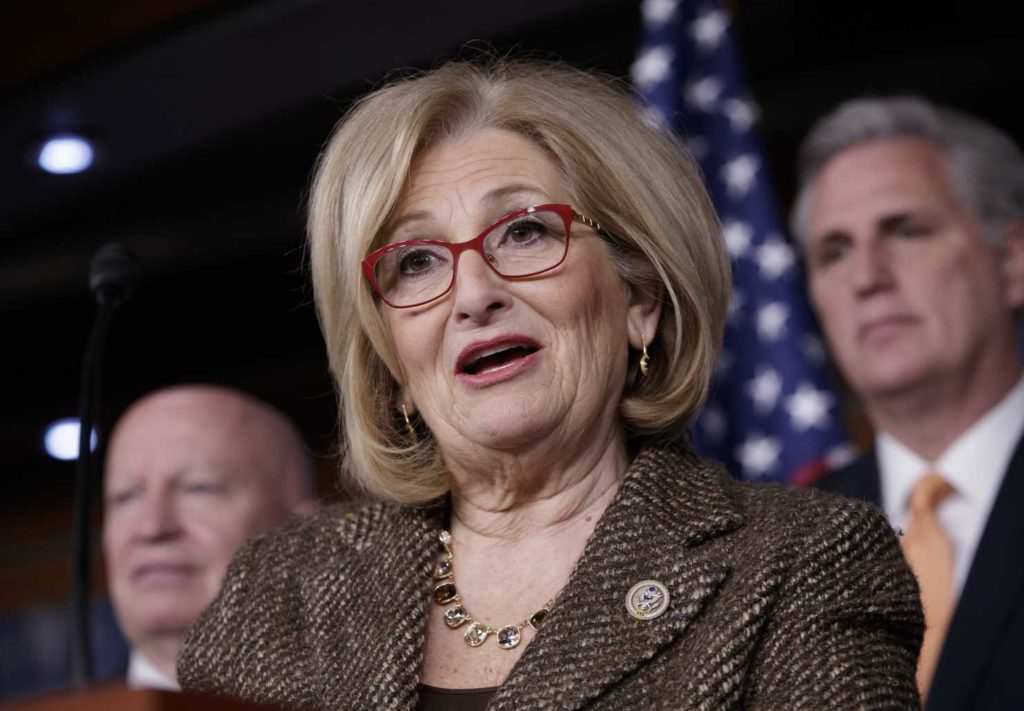
House Republicans on Tuesday unveiled a budget that makes deep cuts in food stamps and other social safety net programs while boosting military spending by billions, a blueprint that pleases neither conservatives nor moderates. The GOP plan, authored by Budget Chairman Diane Black, R-Tenn., is critical to GOP hopes to deliver on one of President Donald Trump‘s top priorities – a Republican-only effort to overhaul the tax code. Unclear, however, is whether GOP leaders can get the measure through the House. Conservatives want deeper spending cuts while moderates are concerned the reductions go too far. Black announced a committee vote for Wednesday, but action by the entire House could be delayed by the ongoing quarrel between the GOP’s factions. Medicare is the second largest mandatory program after Social Security, and the House GOP plan again proposes to turn Medicare into a voucher-like program in which future retirees would receive a fixed benefit to purchase health insurance on the open market. Republicans have proposed the idea each year since taking back the House in 2011, but they’ve never tried to implement it – and that’s not going to change now, even with a Republican as president. The plan, in theory at least, promises to balance the budget through unprecedented and unworkable cuts across the budget. It calls for turning this year’s projected $700 billion or so deficit into a tiny $9 billion surplus by 2027. It would do so by slashing $5.4 trillion over the coming decade, including almost $500 billion from Medicare, $1.5 trillion from Medicaid and the Obama health law, along with enormous cuts to benefits such as federal employee pensions, food stamps, and tax credits for the working poor. “The status quo is unsustainable. A mounting national debt and lackluster economic growth will limit opportunity for people all across the country,” Black said in a statement. “But we don’t have to accept this reality. We can move forward with an optimistic vision for the future and this budget is the first step in that process. This is the moment to get real results for the American people. The time for talking is over, now is the time for action.” But in the immediate future the GOP measure is a budget buster. It would add almost $30 billion to Trump’s $668 billion request for national defense, which already exceeds an existing “cap” on spending by $54 billion. But while Trump proposed taking that $54 billion from domestic agencies and foreign aid, the GOP budget plan would restore most of the cuts, trimming non-defense agencies by just $5 billion. All told, the GOP plan would spend about $67 billion more in the upcoming annual appropriations bills than would be allowed under harsh spending limits set by a failed 2011 budget and debt agreement and pads war accounts by $10 billion. And, like Trump’s budget, the House GOP plan assumes rosy economic projections that would erase another $1.5 trillion from the deficit over 10 years. The measure, called a budget resolution, is nonbinding. It would allow Republicans controlling Congress to pass follow-up legislation through the Senate without the threat of a filibuster by Democrats. GOP leaders and the White House plan to use that measure to rewrite the tax code. As proposed by House leaders, tax reform would essentially be deficit neutral, which means cuts to tax rates would be mostly “paid for” by closing various tax breaks such as the deduction for state and local taxes. However, the GOP plan would devote $300 billion claimed from economic growth to the tax reform effort. But conservatives are insisting on adding cuts to so-called mandatory programs, which make up more than two-thirds of the federal budget and basically run on autopilot. After extended negotiations, Black would instruct 11 House panels to draw up $203 billion worth of mandatory cuts. But neither tea party lawmakers nor moderates are pleased with the idea. Conservatives want larger cuts, while moderates are blanching at voting to cut popular programs such as food stamps. Republished with permission of The Associated Press.
Chris Christie says getting Russian opposition research ‘probably’ illegal
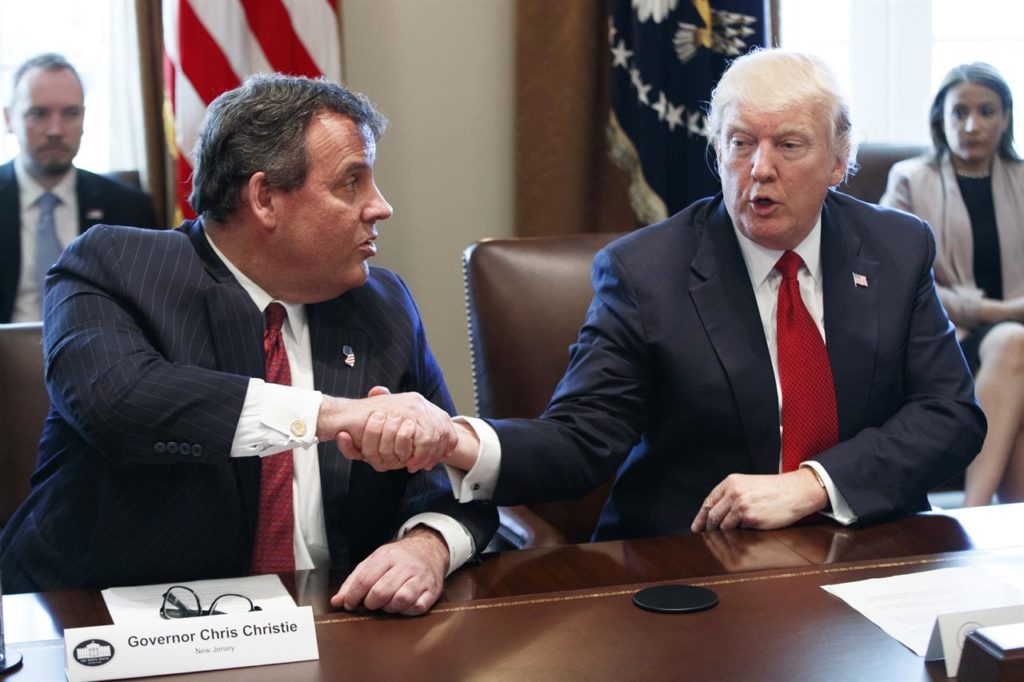
Republican Gov. Chris Christie on Monday addressed Donald Trump Jr.’s 2016 meeting with a Russian attorney, saying it’s “probably against the law” to get opposition research for his father’s presidential campaign from a foreign country. But Christie, a friend and adviser to President Donald Trump, also said that it’s too early be “jumping to conclusions” and that there’s no evidence the campaign obtained such research. “I think, quite frankly, it’s probably against the law in addition to being inappropriate,” Christie said. “I think the thing that bothers me the most is that we seem to have a frenzy of people jumping to conclusions.” Christie, a former U.S. attorney, spoke Monday at an unrelated event in his first public appearance since he ended a three-day government shutdown earlier this month. He was widely criticized after an NJ.com photographer snapped photos of him on a state beach closed to the public during the shutdown. He traveled to Monday’s news conference by state helicopter from another stay at Island Beach State Park. Christie’s comments come a day after the Republican president’s attorney insisted there was nothing illegal in the meeting that Trump’s eldest son attended during last year’s presidential campaign. The president’s attorney, Jay Sekulow, defended Trump and his son in a series of appearances Sunday on five television networks. “Nothing in that meeting that would have taken place, even if it was about the topic of an opposition research paper from a Russian lawyer, is illegal or a violation of the law,” Sekulow said. He said the president did not attend the meeting and was not aware of it. The president himself tweeted Monday: “Most politicians would have gone to a meeting like the one Don jr attended in order to get info on an opponent. That’s politics!” Trump Jr. initially said the June 2016 meeting was about a Russian adoption program. Then The New York Times reported the meeting was actually to hear information about his father’s opponent, Democrat Hillary Clinton. Finally, under pressure from The Times, which had obtained email correspondence, Trump Jr. was compelled to release emails that revealed he had told an associate that he would “love” Russia’s help in obtaining incriminating information about Clinton. Christie served as campaign transition chairman and now leads an anti-opioid commission for the White House. Republished with permission of The Associated Press.
Health care bill collapse leaves divided GOP at crossroads
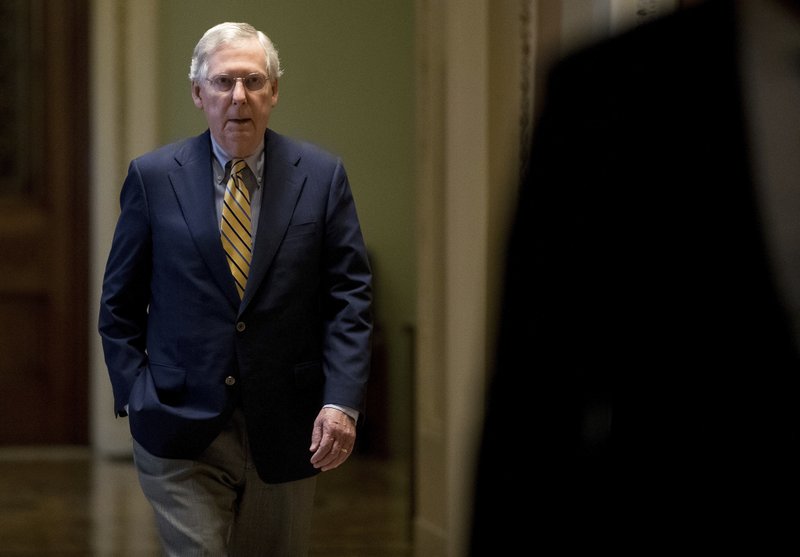
The implosion of the Senate Republican health care bill leaves a divided GOP with its flagship legislative priority in tatters and confronts a wounded President Donald Trump and congressional leaders with dicey decisions about addressing their perhaps unattainable seven-year-old promise of repealing President Barack Obama’s law. Two GOP senators — Utah’s Mike Lee and Jerry Moran of Kansas — sealed the measure’s doom late Monday when each announced they would vote “no” in an initial, critical vote that had been expected as soon as next week. Their startling, tandem announcement meant that at least four of the 52 GOP senators were ready to block the measure — two more than Majority Leader Mitch McConnell, R-Ky., had to spare in the face of a wall of Democratic opposition. “Regretfully, it is now apparent that the effort to repeal and immediately replace the failure of Obamacare will not be successful,” McConnell said in a late evening statement that essentially waved a white flag. It was the second stinging setback on the issue in three weeks for McConnell, whose reputation as a legislative mastermind has been marred as he’s failed to unite his chamber’s Republicans behind a health overhaul package that’s highlighted jagged divides between conservatives and moderates. In late June, he abandoned an initial package after he lacked enough GOP support to pass. The episode has also been jarring for Trump, whose intermittent lobbying and nebulous, often contradictory descriptions of what he’s wanted have shown he has limited clout with senators. That despite a determination by Trump, McConnell and House Speaker Paul Ryan, R-Wis., to demonstrate that a GOP running the White House and Congress can govern effectively. Now, McConnell said, the Senate would vote on a measure the GOP-run Congress approved in 2015, only to be vetoed by Obama — a bill repealing much of Obama’s statute, with a two-year delay designed to give lawmakers time to enact a replacement. Trump embraced that idea last month after an initial version of McConnell’s bill collapsed due under Republican divisions, and did so again late Monday. “Republicans should just REPEAL failing ObamaCare now & work on a new Healthcare Plan that will start from a clean slate. Dems will join in!” Trump tweeted. But the prospects for approving a clean repeal bill followed by work on replacement legislation, even with Trump ready to sign it, seemed shaky. Trump and party leaders had started this year embracing that strategy, only to abandon it when it seemed incapable of passing Congress, with many Republicans worried it would cause insurance market and political chaos because of uncertainty that they would approve substitute legislation. McConnell’s failed bill would have left 22 million uninsured by 2026, according to the nonpartisan Congressional Budget Office, a number that many Republicans found unpalatable. But the vetoed 2015 measure would be even worse, the budget office said last January, producing 32 million additional uninsured people by 2026 — figures that seemed likely to drive a stake into that bill’s prospects for passing Congress. That would seem to leave McConnell with an option he described last month — negotiating with Senate Minority Leader Chuck Schumer, D-N.Y. That would likely be on a narrower package aimed more at keeping insurers in difficult marketplaces they’re either abandoning or imposing rapidly growing premiums. “The core of this bill is unworkable,” Schumer said in a statement. He said Republicans “should start from scratch and work with Democrats on a bill that lowers premiums, provides long-term stability to the markets and improves our health care system.” Similar to legislation the House approved in May after its own setbacks, McConnell’s bill would repeal Obama’s tax penalties on people who don’t buy coverage and cut the Medicaid program for the poor, elderly and nursing home residents. It rolled back many of the statute’s requirements for the policies insurers can sell and eliminated many tax increases that raised money for Obama’s expansion to 20 million more people, though it retained the law’s tax boosts on high earners. Besides Lee and Moran, two other GOP senators had previously declared their opposition to McConnell’s bill: moderate Maine Sen. Susan Collins and conservative Rand Paul of Kentucky. And other moderates were wavering and could have been difficult for McConnell and Trump to win over because of the bill’s Medicaid cuts: Alaska’s Lisa Murkowski, Cory Gardner of Colorado, Rob Portman of Ohio, Shelley Moore Capito of West Virginia and Dean Heller of Nevada, probably the most endangered Senate Republican in next year’s elections. The range of objections lodged by the dissident senators underscored the warring viewpoints within his own party that McConnell had to try patching over. Lee complained that the GOP bill didn’t go far enough in rolling back Obama’s robust coverage requirements, while moderates like Collins berated its Medicaid cuts and the millions it would leave without insurance. McConnell’s revised version aimed to satisfy both camps, by incorporating language by Sen. Ted Cruz of Texas allowing insurers to sell skimpy plans alongside more robust ones, and by adding tens of billions of dollars to treat opioid addiction and to defray consumer costs. His efforts did not achieve the intended result.


